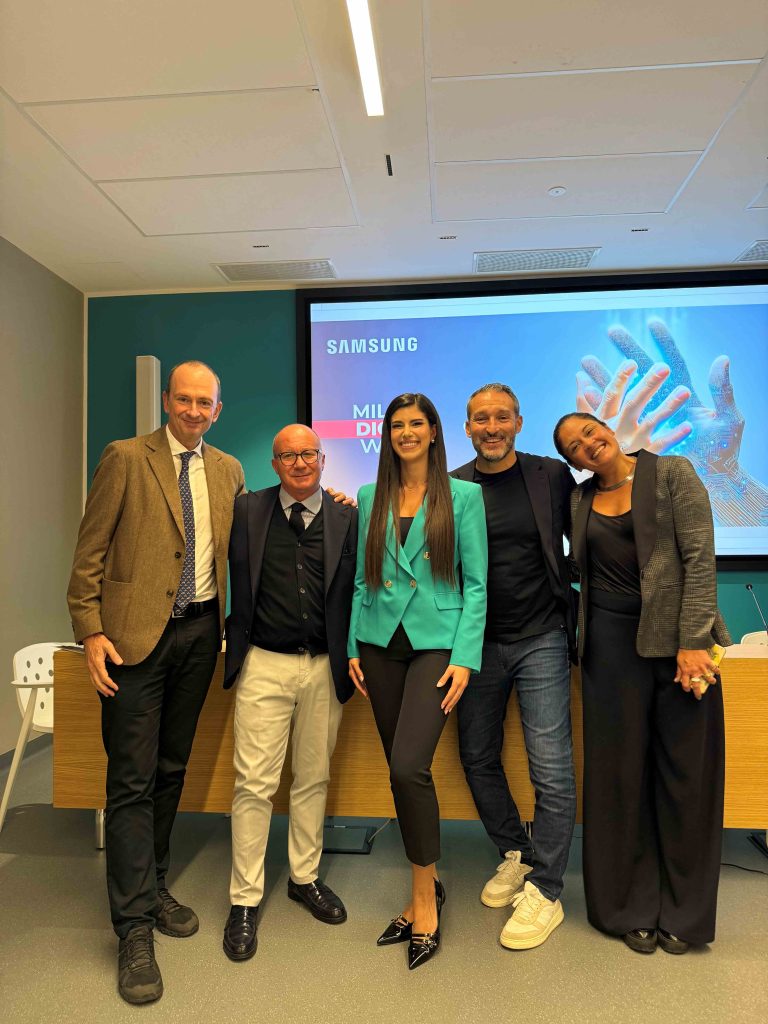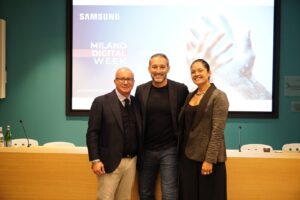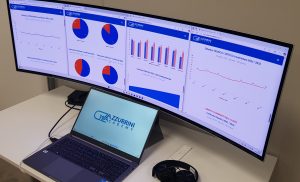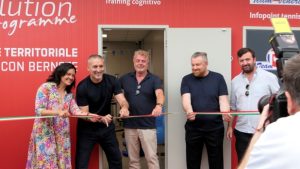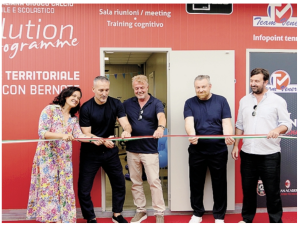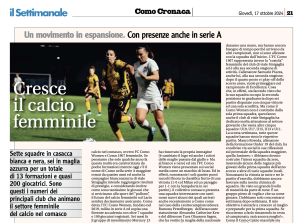As artificial intelligence (AI) continues to reshape industries, its impact on healthcare has become one of the most significant and urgent topics of our time. On October 11, 2024, Milano Digital Week hosted a pivotal event, “Health and Well-being in the Era of Artificial Intelligence,” organized by Samsung Electronics Italia, where the intersection of AI and healthcare took center stage. The discussions explored both the promising opportunities and the challenges presented by AI, as it revolutionizes health and well-being for citizens and medical professionals alike.
During my presentation, I delved into the findings from a recent social media survey I conducted with 540 young participants, focusing on their awareness of AI in medicine. The survey revealed an interesting trend: while many respondents, particularly young women, acknowledged AI’s supportive role in healthcare, a significant gap remained in understanding its practical applications. This knowledge gap signals a critical need for educational initiatives that can increase AI literacy and empower the next generation to navigate this rapidly evolving field with confidence.
I also shared practical insights drawn from my biorobotics studies, illustrating how AI is driving significant advancements in the healthcare sector. From innovative diagnostic tools to enhanced patient monitoring systems and new rehabilitation technologies, AI is reshaping how medical services are delivered and experienced. The potential of these technologies to transform healthcare was evident throughout the event.
The roundtable discussion brought together a remarkable group of speakers who each offered unique insights into the transformative role of AI in healthcare. Professor Stefano Carugo, Director of the Cardiovascular Department at the Policlinico di Milano, explored how AI could revolutionize cardiovascular care, while Cristina Dornini from the Fondazione TOG emphasized its impact on therapeutic interventions for children with complex neurological conditions. Adding to this, Dario Guido, Vice President of Health & Medical Equipment at Samsung Electronics Italia, discussed AI’s ability to redefine medical imaging by improving diagnostic precision, efficiency, and accessibility. Meanwhile, Professor Giuseppe Prencipe of the University of Pisa highlighted the launch of a new master’s degree program in Informatics for Digital Health, signaling a growing commitment to preparing future professionals in this field. Finally, Gianluca Zambrotta, former professional footballer and President of the Azzurrini Academy, shared how AI is being integrated into cognitive training programs for children with autism, showcasing the technology’s broad potential to enhance learning and development.
These discussions went beyond the technical aspects of AI, addressing essential ethical considerations and the human factors involved in its integration into healthcare. The consensus was clear: AI is not here to replace medical professionals but to augment their diagnostic and therapeutic capabilities. The conversation also highlighted Samsung’s comprehensive approach to digital transformation in healthcare, which involves close collaboration with institutions, experts, and research centers to develop integrated ecosystems that deliver real-world benefits.
One of the event’s most exciting announcements was Samsung’s partnership with the Azzurrini Academy to establish a Cognitive Training Room. This new facility, set to open in November 2024, will provide a cutting-edge laboratory dedicated to enhancing cognitive skills through digital technologies. The room will offer innovative training programs for young people with autism spectrum disorders, utilizing tools like interactive whiteboards, curved monitors, tablets, and AI-based devices. The goal is to create an inclusive and stimulating environment that supports cognitive development through customized technological interventions.
The event underscored the incredible potential of AI to transform healthcare, while also emphasizing the importance of maintaining a balance between technological innovation and a human-centered approach. The future of healthcare will not be defined solely by AI’s capabilities but by how effectively we integrate these technologies to enhance the quality of care, while preserving the essential human touch that lies at the heart of medicine.
FONTE:

